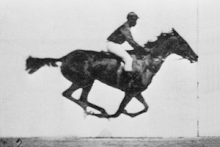To believe is to "feel certain", "think possible", or "have opinion", according to the Oxford dictionary.
Now, let us define the diction, "see"
To see is "to become aware of something using your eyes", "to have or use the power of sight", "to experience", or "to witness".
Beliefs and sight clearly have no defined and superficial correlation between them... or do they?
I believe that seeing is believing up to a certain extent, however, there are some conspicuous counterarguments which will and must be discussed regarding the topic of this post.
First of all, when we see something repetitively, and through experience we feel certain what the outcome is going to be, that becomes our empirical knowledge. In this case, seeing is believing, but it is possible that other senses may be involved in the process.
For example, a simple act like playing an instrument can be called empirical knowledge. By pressing a certain piano key, somebody who has been playing the piano for a while will know what that key is going to sound like, which could potentially explain how professional piano players can play the piano with their eyes closed; their sense of touch and hearing have developed to such an extent that they no longer have the necessity of using their sense of sight. But of course when somebody is just beginning to learn how to play the piano, more often than not, they tend to observe their fingers as they play and rely on their eyes to aid them.
Also, when something grand happens, people tend to say, "you have to believe me, I saw it with my own eyes!", thus implying that seeing is believing as well.
On the contrary, there are times when people see things differently from one another, which was the case in the 1978, when Muybridge's photographs of a galloping horse were used to justify whether all four feet of a galloping horse are ever off the ground at the same time.

The painting above illustrates how Jean Louis Theodore Gericault pictured the galloping horses. However, Muybridge's photographs (below) showed that the legs actually faced inwards and gathered together as they were off the ground, proving Gericault's belief wrong.


The painting above illustrates how Jean Louis Theodore Gericault pictured the galloping horses. However, Muybridge's photographs (below) showed that the legs actually faced inwards and gathered together as they were off the ground, proving Gericault's belief wrong.

This calls our sight into question.
Furthermore, when scientists are carrying out an experiment for the very first time, their hypothesis may be proven wrong after conducting the laboratory practice.
This calls our beliefs into question.
As redundant and illogical I may sound, what we believe in does not necessarily have to be logical or real. Every person is entitled to their own opinion and therefore even if a person thinks that a piano is supposed to sound a certain way, and finds a piano with a different tune to what they thought they knew, that does not imply that they are wrong.
Belief is something which is not constant and can be influenced by its surroundings, and sight is just as vulnerable and prone to change as belief is. So you may see a flower and believe it's a daisy, but somebody else might look at it and believe it's a dandelion. Unless scientific experiments are conducted to find out the species of the particular flower, it will be unknown to both of them, although they might stick to their respective speculations about the flower type.
What I am trying to say is that neither belief or sight should be trusted as neither of those elements are uninfluenced by our surroundings. This idea can be seen in the following quote:
If you put a Cheeto on a big white plate in a formal restaurant and serve it with chopsticks and say something like “It is a cornmeal quenelle, extruded at a high speed, and so the extrusion heats the cornmeal ‘polenta’ and flash-cooks it, trapping air and giving it a crispy texture with a striking lightness. It is then dusted with an ‘umami powder’ glutamate and evaporated-dairy-solids blend.” People would go just nuts for that.
It can therefore be said that "seeing is believing" is a superficial and vague saying- or at least, that's how I see it. I don't know about what your belief is though, because clearly, there are different ways to look at it...





Very good argumentation Ingrid. I see that you believe in science more than in your senses...
ReplyDelete